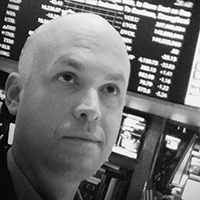Before the Eagles beat the Vikings to spoil Skol-Bowl, prices for Super Bowl 52 were on pace to be the most expensive in history. As reported by Forbes, a Vikings win would have likely sent average prices above $10,000, a level touched by only a handful of games in any sport. Despite dropping 25% since the Eagles and Patriots clinched, tickets for Super Bowl LII may still end up as the Big Game’s most expensive secondary ticket market ever. While the cheapest tickets today start around $3,000, what fans pay for Super Bowl tickets over the next week may have less to do with the teams playing than the new model for selling tickets to the biggest event on earth.
A Vikings-Anyone Superbowl in Minneapolis would have been the first time in the game’s 52-year history that the home team hosted. By crossing the $10,000 average, LII would have joined only the 2015 Patriots-Seahawks matchup. As I wrote about in Daily Beast three years ago, though, that was a ‘busted’ market driven by bad bets that prices would fall, as they had almost every year before. When Seahawks demand hit, the market ran to $12,000 and left hundreds of fans ticketless in the desert. It was also the impetus for the NFL to take a more active role in managing the Super Bowl ticket market. The below Infographic shows how secondary market quantity has changed since then.
If every generation gets the ticket market it deserves, the first generation of the Internet’s ticket buyers deserved access and convenience, after years of waiting in lines. In 2018, whether we want it or not, we’re probably getting the ticket market we need, especially for big events like the Super Bowl. While some will lament the loss of the $1,000 ticket bought in the parking lot, the security needs alone - for both the digital ticket and your physical person - require a new way of operating.
ADVERTISEMENT
In addition to the Super Bowl, managed secondary markets are appearing for local sports teams, as well for national music tours. The most notable example of these is Taylor Swift’s Reputation tour, which starts in May. While the details of all these markets is unique, they all broadly fall under the banner of something called ‘Slow Ticketing’ - the growing effort by ticket owners (whether promoters, league, team or others) to set prices and quantity at levels that match demand. Despite some very outspoken critics of the approach, it’s not going away for the simple reason that it makes more money.
For fans waiting to see prices drop for LII, the Eagles flying into Minneapolis will likely mean 2018 prices finish higher than last season. Last year in Houston had even less secondary listing, and the cheapest ticket dropped below $2,000 for just a minute before a 60% increase in the 5-days before the game. Today, the cheapest ticket is $2,500, compared to $2,200 on the same day last year. With only a few thousand tickets in the market, fans looking for a $1,000 ticket next Sunday 'on the street' risk being left out in the arctic cold--expected to reach a low of 2 degrees on gameday. You can see see a daily-updated infographic on the TicketIQ blog that shows price trends for the last nine Super Bowls, including daily data on last year's market when prices went up 60% in the five days ahead of the game.
Based on numbers from the last two years, a smaller secondary ticket market appears to be the trend, and while that will likely mean a higher-priced future, the alternative is the possibility of another 2015-like blow up - a past that no one wants to revisit.






